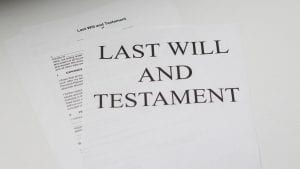People usually think of parents and their children when they think about estate planning. However, with singledom on the rise, it’s an important topic for those without spouses and children.
If you’re a single considering estate planning, you’re on the right track. Estate planning is still important for people like you. Why? Check out the following insights and advice from an estate planning attorney.
There are more single people than ever before
This century is the age of single adults. Today, the number of people living single is higher than ever, and it applies not just in the U.S., but also in other countries. Backing this data up, the U.S. Census Bureau revealed that never before in U.S. history have there been so many unmarried adults.
Now, there are 109 million adult Americans who are widowed, divorced, or have never been married, totaling 45% of the population.
And based on a 2014 Pew Report, 25% percent of today’s adults who reach 50 will never have married. But even if you’re a part of the statistics, you should consider estate planning because it is still important to prevent any issues in the future.
Estate Planning Issues for Singles
Singles who don’t consider estate planning early can meet challenges and problems sooner or later.
For example, their designated beneficiary accounts such as retirement plans can be upheld when they die, even if they gave the account to a beneficiary in a will.

They need help from an estate planning attorney because financial benefits and taxes often favor individuals who are married. This issue on how singles own things also makes estate planning important because they should be careful about how their assets are titled.
Having Health Decision Makers
An accident, a disaster, or a health event could leave you with a permanent injury or incapacitated.
For this reason, you need to assign or designate a trusted friend or a loved one to manage your healthcare decisions on your behalf, as well as your assets in the case of an emergency. Otherwise, decisions can be on the shoulders of a distant relative that you never associated with or a state-designated stranger.
That is why you must sign a general power of attorney, a HIPAA authorization, and a healthcare directive before any health issue that could leave you incapacitated happens.
For example, the HIPAA authorization must be ready – stating that a loved one can have access to your medical information in order to make a medical or decisions on your behalf.
Ensuring Former Spouses Aren’t Beneficiaries
Singles should also ensure that former spouses are not beneficiaries of any of their assets.
For married people, they should consider estate planning so that their assets and estate will go to the right hands when they pass away. If not, those that die without a will commonly have their assets passed to their spouse.
For single people, their assets are usually distributed along their bloodlines. These assets will be given to their children if any, their parents, siblings, relatives, as their heirs.
On the other hand, if the person has no living relatives, these assets will end up with the state.
To prevent this from happening, singles should have a will or an irrevocable trust in place. Either will state their wishes or to whom they want their assets to wind up (loved ones, relatives…).
There you have the reasons singles need an estate plan in place. If you need help in this complicated world of estate planning for singles, you might seek an estate planning attorney who can devise a plan that will ensure all your bases are covered and your assets are not just protected, but also distributed in the manner you decide.


Join the conversation!